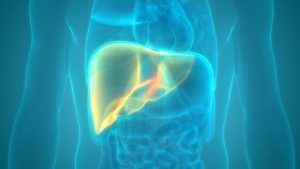
Your liver is a vital organ. Among its chief responsibilities are processing and filtering nutrients and toxins. It helps ensure you’re getting what you need and getting rid of the stuff that may cause harm.
As resilient as it is—and it is resilient, as it can heal itself quickly if given the time—your lifestyle can make life very hard on this valuable organ.
Liver disease is on the rise in the United States. Research suggests that between 1999 and 2016, deaths from cirrhosis increased by 65 percent. Part of this number may be attributed to non-alcoholic fatty liver disease, or NAFLD, which is largely the result of diet and lifestyle.
Previously, liver diseases like cirrhosis were attributed to excessive alcohol consumption, but now other causes, like diet, are associated with poor liver health.
A healthy liver is well within reach for most people. If you’re yet to develop any severe liver damage, but you are at risk, you may be able to reverse its trajectory by implementing a handful of lifestyle measures.
The best way to treat and fight liver disease is to avoid it.
Here’s a checklist to help you take care of your liver and promote liver wellness:
- Eat a balanced diet: Limit intake of high sugar foods, refined grains (like white bread), saturated fats, and processed food. On the other hand, fibrous fruits and vegetables, whole grains, healthy fats, and lean meats can promote liver health. Certain vegetables, like broccoli and kale, may have additional benefits to promote better liver health.
- Exercise: Regular exercise can help burn triglycerides that may impair liver function. It can also help reduce potentially harmful liver fat. Aim to exercise for at least 30 minutes per day.
- Manage weight: High body fat can boost the risk of liver fat and impaired function.
- Follow instructions on medication: Medication and supplements can lead to liver damage if used irresponsibly. Carefully follow usage protocols.
Use alcohol responsibly: Limit alcohol intake to one or two standard drinks per day.
Limit exposure to household toxins: Cleaners, aerosol sprays, and other household products may promote liver damage. Use in well-ventilated areas, wear a mask, or elect safer alternatives.